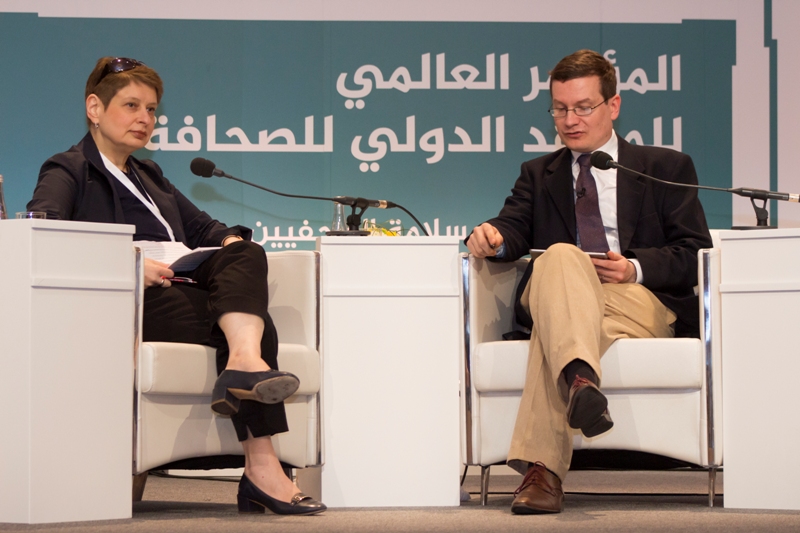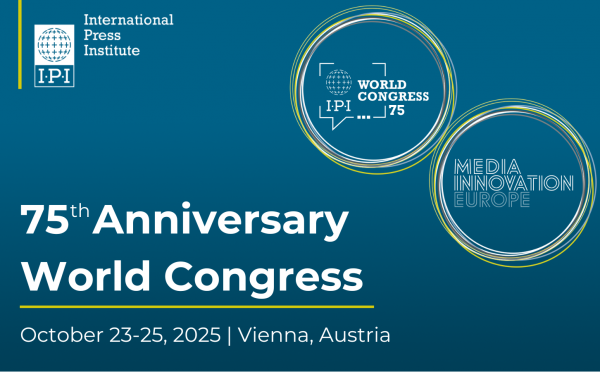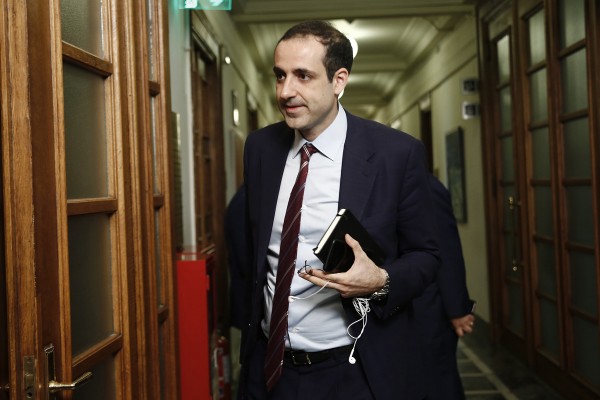Russian President Vladimir Putin intends to make Russia into a global player, equivalent in power to the United States, Nina Khrushcheva, professor of international affairs at The New School University, said Monday in an interview with Kaius Niemi, senior editor-in-chief of the Helsingin Sanomat, during the International Press Institute (IPI)’s World Congress.
Khrushcheva, the granddaughter of late Soviet Premier Nikita Khrushchev, is the author of a memoir chronicling her family history titled “The Lost Khrushchev: A Journey into the Gulag of the Russian Mind”.
The international relations expert told an audience gathered to hear her speak on “The Evolving Role of Russia in the Middle East and the World at Large”, that she was not going to talk about her background, but that she wanted “to talk about Vladimir Putin, because even if he does seem trivial – especially after all the stories of brave journalism we’ve heard over the last two days – the triviality extends over 11 time zones.”
Though Russia is certainly considered a “regional power”, Khrushcheva said, using U.S. President Barack Obama’s characterisation, Putin has grander ambitions. She said that his staunch defence of Bashar al-Assad’s contested regime in Syria is due to the fact that, through Assad, Syria is one of the few Middle Eastern countries Putin can directly influence.
By attempting to expand Russia’s sphere of influence over the Middle East and by fostering closer relations to Egypt and Iran, in addition to his efforts in Syria, Putin is working to position Russia as a world power on par with the United States, Khrushcheva opined.
“That is a great game,” she said. “His job – or the job he thought he had – is to bring Russia to the grown-up table.”
If Putin were to remain in power, Khrushcheva said, she expects he will continue to utilise his “splinter tactics” of finding and exploiting opponents’ weaknesses to further his goal of expanding Russian influence.
Pivoting to a discussion of Russia’s economic state, Khrushcheva noted the financial strains on the country due to falling oil prices and the economic sanctions imposed on it after the 2014 invasion of Crimea. Even with these difficulties, she said she did not expect Russia’s population would necessarily turn against Putin.
“It can last for a really long time, depending on how long Russians decide to withstand the inconvenience of hardship,” she said of Putin’s time in power. “Perhaps the revolution will come tomorrow, perhaps it will last another 10 years.”
Khrushcheva explained that part of the reason for Putin’s public support is simply the fact that people cannot find an alternative: “Better the devil we know,” she said.
She also indicated that the European Union missed its chance to chip away at the legitimacy of Putin’s regime because the bloc’s individual countries were “not speaking with one voice”. Even though they imposed sanctions, Khrushcheva noted, some EU countries voiced their opposition to the action.
Under the current Russian constitution, Putin will be able to stay in power until 2024, Khrushcheva predicted, unless the Russian people decide they are no longer willing to live under such difficult economic conditions and revolt.
“You can imagine what would happen in the next eight years [if Putin stays in power] and I imagine it is nothing good,” she said.



